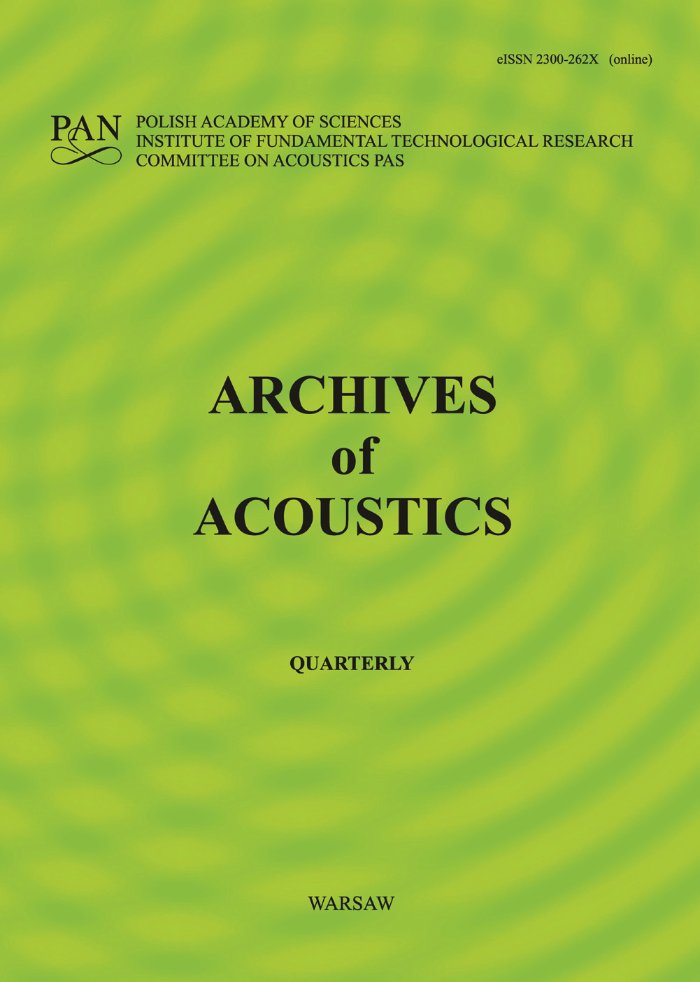Abstract
The present paper describes the optimal conditions for generating a Surface Acoustic Wave (SAW) for a gas sensor system. For achieving stable operation it is necessary to assure the largest possible distance between the frequency modes. In order to attain this condition, the length between transducers should be decreased accordingly.References
[1] H. WOHLTIEN, Mechanism of operation and design considerations for Surface Acoustic Wave device vapour sensor, Sensors and Actuators, 5, 307–325 (1984).
[2] A.J. RICCO, S.J. MARTIN, T.E. Z1PPERIAN, SAW gas sensor based on film conductivity changes, Sensors and Actuators, 8, 319–333 (1985).
[3] M. URBAŃCZYK, W. JAKUBIK and S. KOCHOWSKI , Sensor properties investigation of copper phtalocyanine with use of SAW, Sensors and Actuators, B, 22, 2, 133–137 (1994).
[4] H. MATTHEWS, Surface wave filters. Design, construction and use, John Wiley and Sons, New York–London–Sidney–Toronto 1977.
[5] M.F. LEWIS, Surface acoustic wave devices and applications, Ultrasonics, 115–123 (1974).
[2] A.J. RICCO, S.J. MARTIN, T.E. Z1PPERIAN, SAW gas sensor based on film conductivity changes, Sensors and Actuators, 8, 319–333 (1985).
[3] M. URBAŃCZYK, W. JAKUBIK and S. KOCHOWSKI , Sensor properties investigation of copper phtalocyanine with use of SAW, Sensors and Actuators, B, 22, 2, 133–137 (1994).
[4] H. MATTHEWS, Surface wave filters. Design, construction and use, John Wiley and Sons, New York–London–Sidney–Toronto 1977.
[5] M.F. LEWIS, Surface acoustic wave devices and applications, Ultrasonics, 115–123 (1974).


